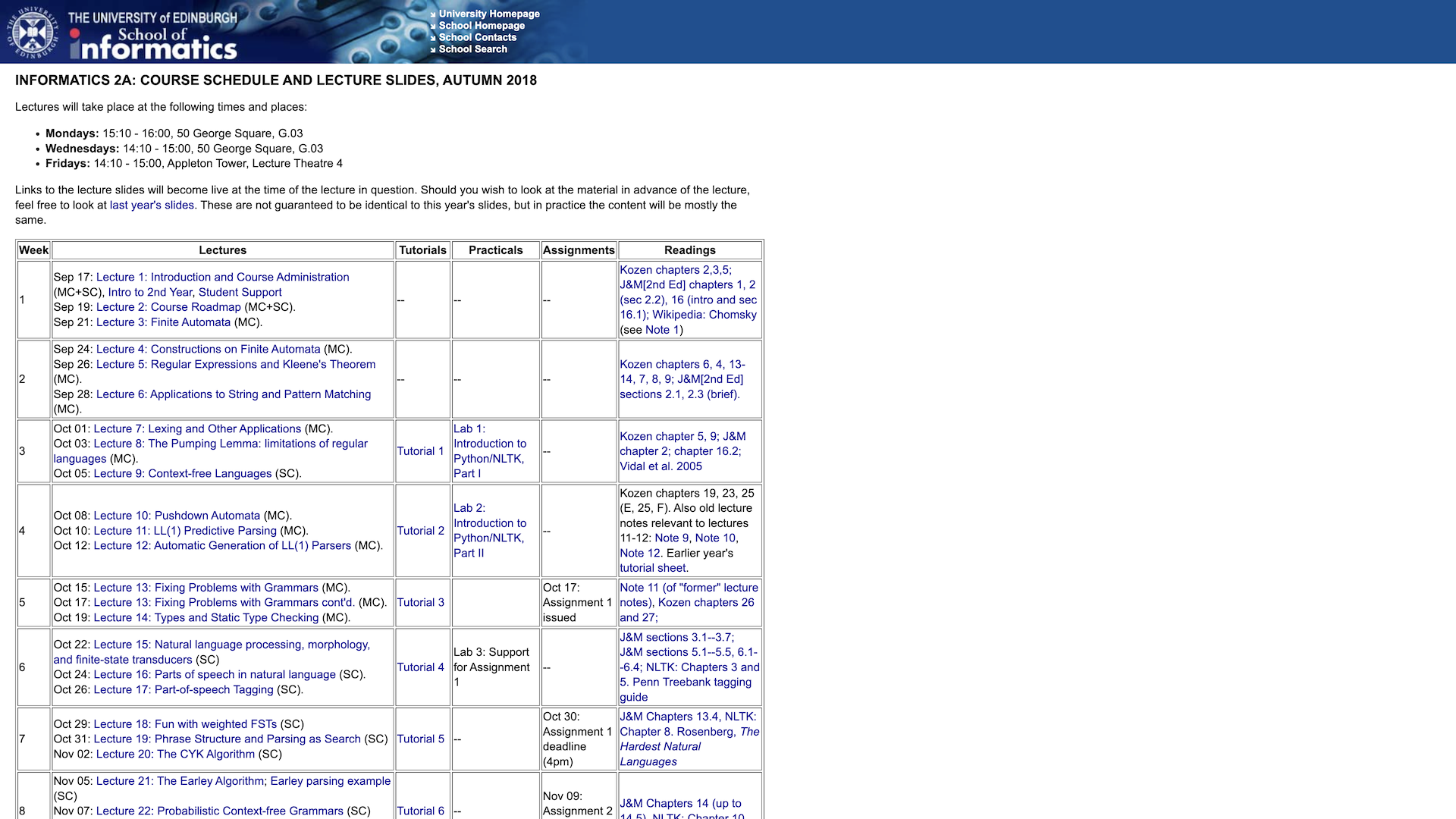Informatics 2A | Natural Language Processing | University of Edinburgh
Explore the processing of formal and natural languages, including finite automata, regular expressions, and parsing techniques. Hands-on labs and tutorials reinforce concepts.
Introduction
Informatics 2A is a course that covers the processing of formal and natural languages, including topics such as finite automata, regular expressions, context-free languages, and parsing techniques.

Highlights
- Covers a wide range of topics in formal language theory and natural language processing
- Includes hands-on labs and tutorials to reinforce concepts
- Provides a solid foundation for further study in computer science and linguistics
Recommendation
This course is recommended for students interested in computer science, linguistics, and the intersection of the two fields. It provides a strong theoretical background as well as practical skills in language processing, making it a valuable addition to any student's curriculum.
How GetVM Works
Learn by Doing from Your Browser Sidebar

Access from Browser Sidebar
Simply install the browser extension and click to launch GetVM directly from your sidebar.

Select Your Playground
Choose your OS, IDE, or app from our playground library and launch it instantly.

Learn and Practice Side-by-Side
Practice within the VM while following tutorials or videos side-by-side. Save your work with Pro for easy continuity.
Explore Similar Hands-on Tutorials
Guide to Prompt Engineering
6Text Processing in Python
16Unix for Poets | Text Analysis & Poetry
25Deep Learning for Natural Language Processing | University of Oxford
18Deep Learning for Natural Language Processing | Stanford University
6UvA Deep Learning Course | Artificial Intelligence | Computer Vision
3Computer Vision | Artificial Intelligence | Cornell University
13OpenCV Tutorials
0Computational Techniques in Pixel Processing | Image Processing, Computer Vision
0Discover categories